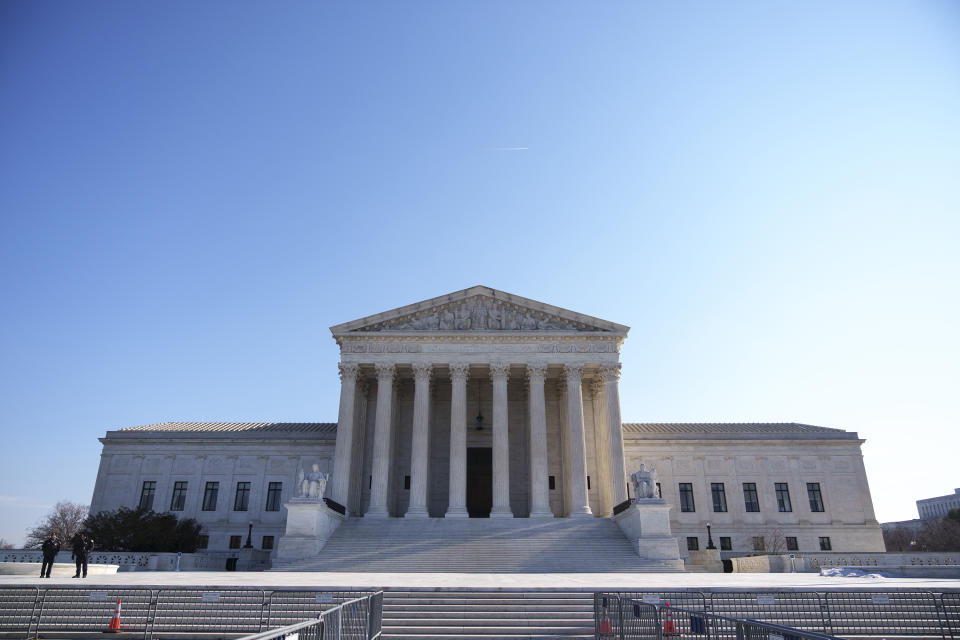Editorial: A sorry state: The US Supreme Court threatens to eliminate oversight

In a case challenging requirements for fishing companies to absorb certain monitoring costs, the U.S. Supreme Court seems poised to go well beyond the regulations at issue and do away completely with a decades-old precedent known as Chevron deference. Very basically, the 1984 doctrine holds that courts should defer to expert federal agency interpretations of laws in cases where the type and focus of regulations are not clearly laid out.
If you’re wondering why we’re writing about what seems like an arcane legal rule, that’s exactly the problem; this doesn’t have the same immediate resonance and clear outcome as, say, overturning Roe or eliminating gun controls. Yet tossing Chevron overboard might have more wide-ranging implications, and not just for one type of policy but for agencies across the federal government and, consequently, the lives of practically all Americans.
Opponents of Chevron will often couch it as a simple matter of reining in a federal administration that will stretch laws well beyond congressional intent and use them to ceaselessly expand its authority, and there will always be examples of this. Without looking too far, federal courts allowed a number of Trump-era immigration restrictions at least in part based on deference to supposed administrative expertise, which was really just the president’s political preferences.
Even without getting into the egregious stuff, there are plenty of smaller-scale regulations that could certainly be argued to exceed statutory authority or otherwise be ill-considered or overly burdensome.
But there’s already a remedy for that in the federal courts; this case itself is a challenge to a specific regulation, and there’s an entire area of law — the Administrative Procedure Act— that is intended to ensure that federal regulations are not made capriciously or without considering their impact or the authority to promulgate them. To use the example of Trump’s anti-immigration push, other policies were struck down precisely because they violated the APA, and Chevron didn’t stop that.
What detractors will rarely mention is that this type of agency deference has become built-in to the government’s ability to regulate increasingly complex industries and economies, not just in the abstract but in ways that matter day to day. If you were rattled by the recent incident with an Alaska Airlines’ Boeing 737 MAX 9 blowing out a door plug mid-flight, think about what happens when the Federal Aviation Administration is restricted to letter-of-the-law enforcement and constantly battling industry lawsuits whittling its power down.
Had food poisoning lately? Get used to much more of it if the extent to which the FDA and USDA can inspect your produce and meat can be dictated by a district court judge with zero technical expertise and aiming to narrowly define the government’s role to strict congressional intent.
And then there the issues and industries around which Congress legislates change constantly, and it can’t be expected to update the laws as rapidly as technology in particular shifts. The Federal Communications Commission, established in 1934, certainly wasn’t set up specifically to oversee internet giants like Meta/Facebook and Alphabet/Google, but it’s imperative that it can adapt to changing circumstances.
With one sweeping motion, the high court could all but take apart the administrative state on which we all rely, and concentrate even more power on itself. Let’s hope we’re wrong.
___

 Yahoo Finance
Yahoo Finance 